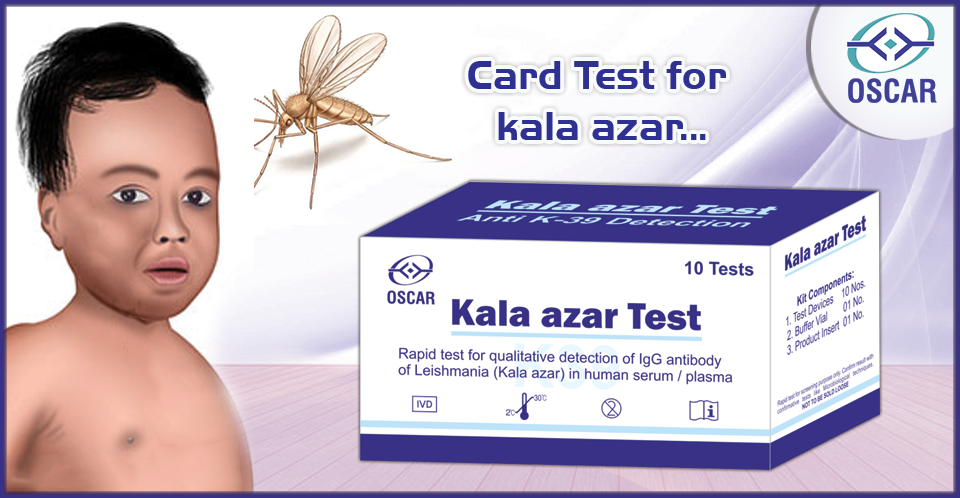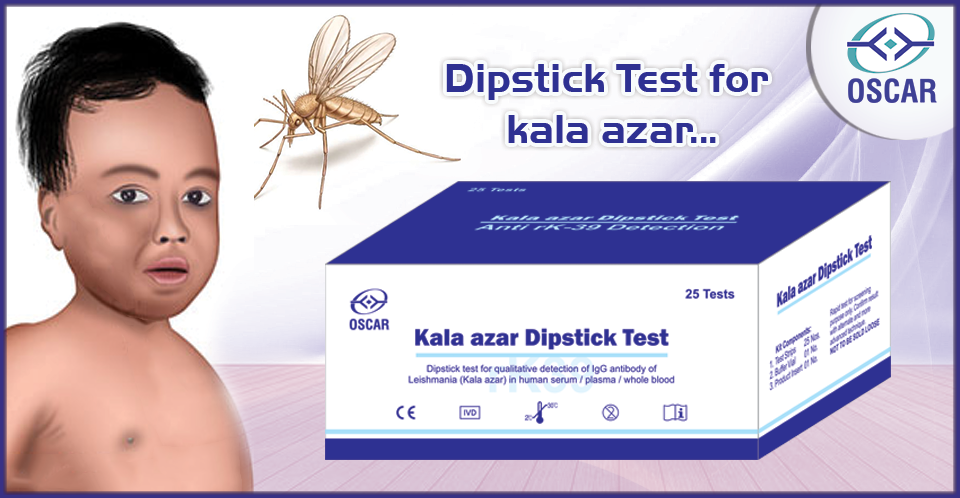Oscar Kala azar test is rapid an immuno assay intended used for qualitative detection of antibody to Kala azar (Leishmaniasis) in human serum / plasma as in aid of Kala azar diagnosis. The test is based upon LFT (Lateral flow technique). The nitro cellulose membrane is immobilised with recombinant protein of Kala azar (rK39) at test line zone. The indication of pink / purple line at T zone in addition to line at C zone indicates a positive reaction. No pink / purple line at T zone indicates negative reaction. Oscar Kala azar kit contains 10 numbers of individually sealed pouches containing test cards / devices along with disposable sample dropper. A dropper vial containing running buffer / assay buffer is provided in the kit along with piece of product insert, It has shelf life of 24 months from date of manufacturing if stored at 2-30â° C under sealed conditions. Oscar Kala azar test has been evaluated at RMIMS-Patna (India) and CDRI-Lucknow (India) for its sensitivity and specificity.
Our company has 10 years' experience!
-
Call us anytime
011-41076195,41076196
-
Opening time
Mon - Sat 09.00 to 06.00
-
Email us now
info@dhitibiotech.com
Kala azar card test
Kala azar dipstick Test
Oscar Kala azar dipstick test is rapid immuno assay intended used for qualitative detection of antibody to Kala azar (Leishmaniasis) in human serum / plasma / whole blood as in aid of Kala azar diagnosis. The test is based upon LFT (Lateral flow technique). The nitro cellulose membrane is immobilized with recombinant protein of Kala azar (rK39) at test line zone. The indication of pink / purple line at T zone in addition to line at C zone indicates a positive reaction. No pink / purple line at T zone indicates negative reaction. Oscar Kala azar dipstick kit contains 10 numbers of individually sealed pouches containing test strips along with disposable sample dropper. A dropper vial containing running buffer / assay buffer is provided in the kit along with piece of product insert, It has shelf life of 24 months from date of manufacturing if stored at 2-30â° C under sealed conditions. Oscar Kala azar test has been evaluated at RMIMS-Patna (India) and CDRI-Lucknow (India) for its sensitivity and specificity.


